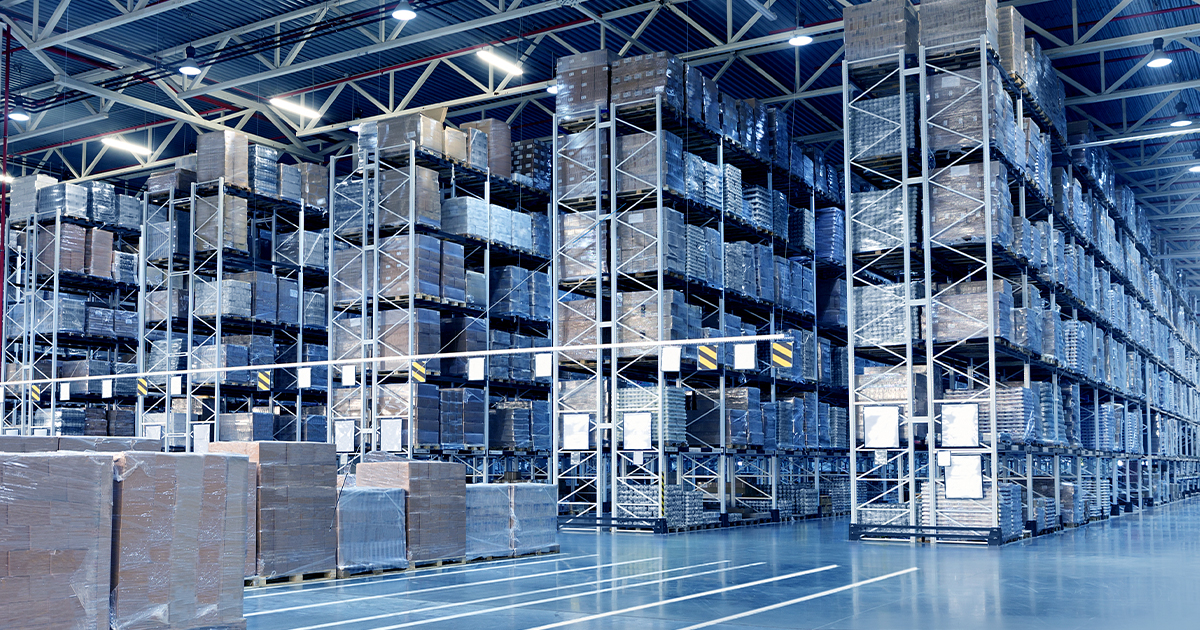In 2017, U.S. consumers purchased about $424 billion in ecommerce goods.
By 2021, demand had nearly doubled, with $767 billion in annual sales.
And by 2025, demand will nearly double again, with annual sales expected to surpass $1.3 trillion.
In terms of demand, it couldn’t be clearer where ecommerce is heading. Experts anticipate that demand will continue to rise for the foreseeable future as online retailers like Amazon further expand their reach and consumers increasingly opt for at-home shopping experiences.
What’s somewhat less clear is how retailers will keep up. In order to meet consumer demands – particularly for services like rapid shipping – online retailers rely on a vast network of industrial warehouses to store product and move goods. Nowhere are these industrial properties more necessary than dense urban areas, where the majority of the nation’s consumers live. And nowhere is the market for industrial space more competitive.
One of the nation’s largest markets is Chicagoland. With more than 10 million residents in the Chicago metropolitan area, the market is huge, and so is the potential for online retailers. However, opening a warehouse in the densest areas of Chicago can be unfeasible, due to cost or logistical complications. That’s why many retailers have turned to suburbs within the metro, such as DuPage County.
DuPage County’s strategic location amid the Chicagoland market
Located just west of downtown Chicago, DuPage County has long been a regional hub for transportation, as well as corporate headquarters, regional office spaces, education, science, technology and advanced manufacturing, among other industries. But in recent years, following ecommerce trends, DuPage has become a popular hub for industrial warehouses, used by retailers to serve Chicagoland’s vast consumer base.
Hence DuPage County’s industrial vacancy rate, which, as of January 2022, was at a historic low of 3.2%.
For online retailers, part of DuPage’s appeal is its proximity to the Chicago area’s massive consumer base. Using the area’s seven major interstates, retailers can quickly and efficiently move goods to any of the 10 million residents in Chicagoland. They can also access 28 of the top 30 cities in the Midwest within an eight-hour drive.
In addition to highways, DuPage is also uniquely positioned to take advantage of the region’s transportation infrastructure. The area is home to three international airports, including Midway, the DuPage Airport, and O’Hare, the top U.S. cargo airport based on value of shipments.
Meanwhile, the region is also home to the nation’s busiest rail gateway – fifty-percent of all U.S. rail freight passes through Chicago’s rail system by way of DuPage County – as well as the nation’s largest inland port, the Centerpoint Intermodal Center.
Besides the transportation infrastructure, industrial buildings for rent in DuPage benefit from a lower cost of doing business – you can view local tax rates here or take a look at the region’s latest economic indicators report – a large skilled workforce, and a collaborative environment in which businesses along the supply chain work together, along with public leaders, to support one another and create mutually beneficial outcomes.
Finding industrial real estate in DuPage
With all the benefits we mentioned above, DuPage has become a prime location for industrial warehouses. And that has resulted in a record-low vacancy rate.
While it’s a mark of a healthy economy, a low vacancy rate can make it tough for businesses to find new industrial land, industrial buildings for sale, or industrial buildings for lease. (One of the few industrial lots in DuPage currently available is at the DuPage Business Center, a 640-acre space with business sites for sale or build-to-suit from five to 60 acres.)
Fortunately for businesses, more space is set to open soon. There are currently 3.4 million square-feet of new industrial space under construction in DuPage County, as developers across the region quite literally lay the groundwork for the future.
To learn more about transportation, logistics and warehousing in DuPage County, start here.


